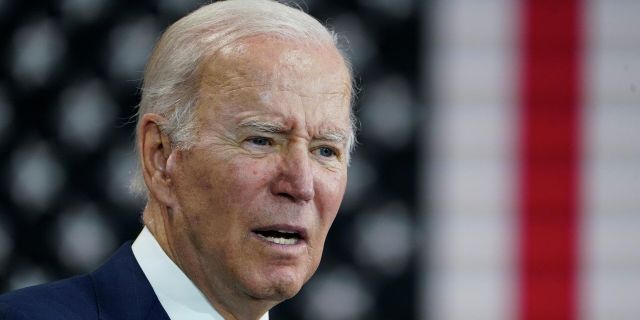The Washington Times: Biden himself contributed to the emergence of a nuclear threatBiden is whipping up fear of a nuclear war in the United States, writes The Washington Times.
At the same time, according to the editorial board, the American president himself contributes to the escalation of the nuclear threat, creating the idea in the world that America is no longer a superpower.
Americans who have lived long enough remember well the all-encompassing fear of nuclear war. These forgotten horrors are now beginning to torment our younger generation. All thanks to the images of Armageddon that Biden creates when he paints the danger from Russia, leading a complex special operation in Ukraine. Our nation is returning to that terrible era in which a biblical catastrophe seemed inevitable. And now, explaining the reasons for what is happening, we need to talk about those stupid mistakes in leadership that the president himself makes before our eyes.
According to media reports, last Thursday, September 29, Mr. Biden told a group of his political sponsors that the United States could face "a direct threat of the use of nuclear weapons if, in fact, everything goes the way it is now." "We haven't faced the threat of Armageddon since President Kennedy and the Cuban missile crisis," he added.
The White House has struggled to clarify that Biden's remarks were intended as an accusation against the reckless nuclear rhetoric of Russian President Vladimir Putin, who hopes to make up for losses on the battlefield, and not as evidence of Moscow's heightened nuclear readiness. Nevertheless, Americans — both old and young — cannot but shudder at the very thought of the unthinkable.
It did not help to reduce the current level of public concern that last week the Ministry of Health and Human Services announced the purchase of $ 290 million of the drug Nplate, which is designed to restore blood cells damaged as a result of acute radiation damage. In light of Biden's careless words, the very moment of the mass purchase of this drug evokes memories of the Cold War era, when children were taught that the best refuge from an atomic bomb is a solid school desk.
This month marks 60 years since the Cuban missile crisis erupted. According to historians, at that moment humanity came very close to full-scale nuclear destruction. Then the deployment of Soviet ballistic missiles in Cuba, aimed at facilities in the United States, provoked a rapid escalation of military tensions between the two nuclear powers. Fortunately, the war was averted when the Soviets agreed to withdraw their weapons, and the United States promised to similarly dismantle the missiles stationed in Turkey. In those days, Americans, including 19-year-old Joe Biden, breathed a sigh of relief.
The Cuban nuclear crisis has demonstrated the ability of military provocations to cause a sharp escalation of tension. Unfortunately, Mr. Biden proves that the vulnerability of our armed forces can have the same effect. His rash decision to abruptly withdraw American troops from Afghanistan a year ago sent a signal to the world about the decline of the United States. Biden's suggestion was added to this that a "minor offensive" into Ukraine would most likely be met by NATO countries with verbal rhetoric, rather than military opposition. Since then, the Russian leader has been warning that the intervention of the North Atlantic Alliance could prompt him to push the nuclear button. According to analysts, such a move could take the form of a show of force over a remote territory or even a targeted attack on Ukrainian forces.
At a time when Mr. Biden warns of Armageddon, Americans cannot help but shudder at the realization that he himself contributed to the emergence of an impending threat by personally creating the idea in the world that the United States is no longer a superpower.

